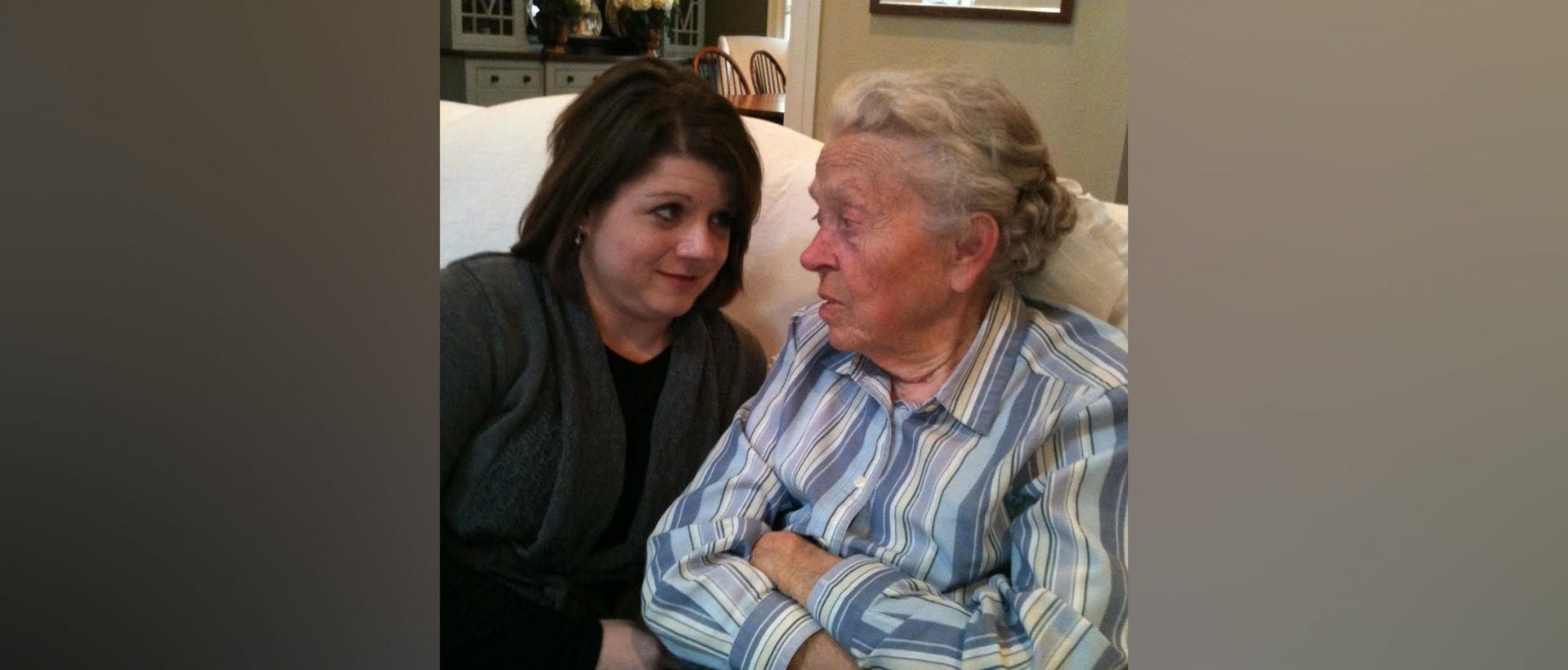Suffering is not for nothing. – Elisabeth Elliot
This quote has frequently come to my mind over the past several years. Having read Elisabeth’s books, listened to hours of her teaching, and been thoroughly rocked by her faithfulness and steadfast obedience, I knew it was the opportunity of a lifetime when I was invited to spend a few days with her and her husband several years ago.
The mutual friend who arranged the time cautioned me that Elisabeth was suffering from dementia and was almost completely unable to communicate. Even so, I was excited to be in the presence of such a spiritual giant.
Not for Nothing
There is much I could share about those days I spent with Elisabeth, but one experience is particularly on my mind as I write while flying home from her funeral service. The moment came in a simple circumstance with Elisabeth, arguably the most influential Christian woman of the 20th century. We were far off the beaten path in a place where there was no fanfare for this spiritual giant who had given so much to Christ and his kingdom. I sat holding her hand, but the microphone was gone. The lines waiting for an autograph were gone. The pen would be pointless. She sat struggling to stay awake even as we journeyed on. And I was full of a righteous anger I’d not previously experienced.
How could it be that this woman who had given so much to the cause of Christ could be in such humble circumstances? How could she sit unable to communicate her wants, needs, or feelings? I knew beyond a shadow of a doubt that at that moment there were millions around the world who were walking in some area of faithfulness as a result of her ministry. It seemed so wrong that she would be experiencing any degree of suffering in light of that fact.
Yet, right on the heels of the anger that welled up in my heart was a sense of conviction. Why was this suffering wrong for her? Was her faithfulness any less beautiful or pleasing to the Lord when it was done without the ability to express it? Does God not look on the heart, which was surely unchanged? Why was I so quick to protect her from suffering? Had she not taught (as well as anyone ever has, I dare say) that suffering is the means by which we know the love of God?
Here I was bemoaning the very thing that was central to her entire life and ministry. In that moment, I realized the years of suffering she bore in the end didn’t in any way contradict what she taught throughout her life. If what she taught was true, as I believe it to be, then the suffering she experienced in her final years was just like the suffering she experienced at other times in her life. It was a means by which the joy that was to come was being perfected and by which God’s love was known. It was not for nothing.
Lessons Yet to Be Learned
This journey found its fullest reality at 6:15 a.m. EST on June 15, 2015, when Elisabeth breathed her last on this earth. In that moment, she went through gates of splendor and found her suffering complete in the joy of her Savior. As I sat in her funeral service and heard her husband, Lars, share the story of her last hours on earth, my mind was reeling with what is yet to be learned from Elisabeth. She will not write a new word or speak a new message, but her life can continue to instruct those who have ears to hear. So I want to share a few key thoughts especially for the Gen X and Millennial crowd that may read this article.
1. Be leery of any ministry position that is comfortable. To the best of my knowledge, Elisabeth’s ministry rarely could have been described as “comfortable.” The resulting depth of ministry, perspective, and wisdom would not have come from a position that allowed serving through autopilot or when insulated from reality.
2. Obey—even when it’s hard. There is nothing in Elisabeth’s life that suggests she did anything except obey when God called her to something—no matter what it was. She fought for purity, tackled Bible translation, parented as a single mom in the jungle . . . and that just gets us into the 1960s. Her life was marked by persistent, steadfast obedience. The bride of Christ would certainly be strengthened if we paused now and committed to truly obey God.
3. Have real relationships. This is something that stood out to me in the funeral service. Elisabeth’s brothers shared stories about her that made it clear she was plugged into her extended family throughout her life. But it didn’t stop with her family. I had the opportunity to speak with many lifelong friends of hers who spoke of her humanity, her sense of humor, and her quirks with even more love and admiration than a distant fan (such as myself) could possibly experience. We all need people who truly know us, even if the only platform separating you from the masses is the common mask of social media.
Incomparable Woman
Elisabeth Elliot was an incomparable woman who served faithfully around the world and in the face of incredible suffering at multiple points in her life. May her example of obedience compel us to render lifelong, wholehearted obedience to Christ and his Word.
Follow Elisabeth’s example, read her books, and listen to her messages. Allow God to affect you through this simple servant, and her suffering will bear even more fruit.
For our momentary light affliction is producing for us an absolutely incomparable eternal weight of glory. So we do not focus on what is seen, but on what is unseen. For what is seen is temporary, but what is unseen is eternal. (2 Cor. 4:17–18, HCSB)
